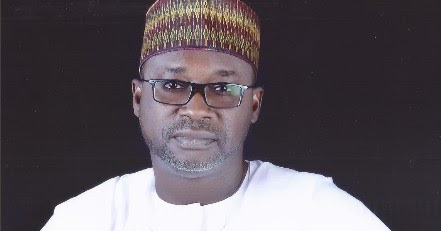The Civil Society Coalition on Sustainable Development (CSCSD) has called on governments to prioritise Goal Six of the Sustainable Development Goals (SDGs) in their water and sanitation projects.

The coalition made the call on Tuesday, September 25, 2018 in Abuja at a roundtable on the National Water Resources Bill, which is currently pending before the Senate, in commemoration of the third anniversary of the introduction of the SDGs.
The gathering, which attracted stakeholders from different organisations, presented an opportunity for civil society to contribute to efforts to create the way forward for Nigeria in the new global development order.
Some 17 SDGs were adopted by the UN General Assembly on Sept. 25, 2015, to replace the Millennium Development Goals (MDGs) which commenced in 2000.
Goal Six of the SDGs is targeted at achieving universal and equitable access to safe and affordable Water, Sanitation and Hygiene (WASH) for all by 2030.
Dr Tola Winjobi, National Coordinator of CSCSD, in his address, said that civil society organisations (CSOs) in the water sector found it expedient to join the global civil society to mark the third anniversary of SDGs.
According to him, anniversary is celebrated simultaneously across the world by governments, CSOs and professional associations, among others.
Winjobi, therefore, urged the federal, state and local governments in the country to prioritise the WASH sector in their governance projects.
He said that as part of efforts to achieve this, there was a need for the opponents of the Water Resources Bill to have a rethink because of the importance of the bill in the management of the country’s water sector.
He stressed that the achievement of Goal Six of the SDGs was largely dependent on the political will of the nation’s political leaders, adding that the prioritisation of the water sector was imperative, considering its roles in the fulfilment of all the SDGs.
Winjobi said that Nigeria had the wherewithal to attain the SDGs, particularly Goal Six which related to the water sector.
“One of the goals that needs to be prioritised is Goal Six, which mandates the governments to ensure the availability, sustainability as well as management of water and sanitation for all before 2030,’’ he said.
He lamented that the self-centredness of some leaders, coupled with endemic corruption, had been the bane of the development of the waster sectors over time.
He said that the bill, when passed, would be a compendium of all water-related bodies that were already in existence such as the National Inland Waterways and the National Water Resources Institute.
Winjobi underscored the need for all stakeholders in the water sector to join hands with government to educate the public on the benefits of the bill.
He highlighted some of the benefits as economic development, social welfare and environmental sustainability, land and water resources management, among others.
Also speaking, Rev. Father Patrick Ngoyi, Chairman of Board of Trustees, CSCSD, called for a synergy between government officials and stakeholders in the water sector to address perceptible misunderstandings on the bill.
Ngoyi also urged media to undertake enlightenment campaign through their reportage to sensitise Nigerians to the importance of the water bill.
Mr Reuben Habu, Executive Director, Nigeria Integrated Water Resources Management Commission, thanked the stakeholders for considering issues surrounding the bill during the third anniversary of the SDGs.
He said that while Nigeria appeared to have abundant water resources, the sustainability of the resources seemed to be threatened by land degradation, deforestation, climate change and other socio-economic factors.
Habu noted that all these challenges had placed tremendous pressure on the country’s water resources system, adding, however, that the bill had the capacity to address some of these challenges when passed into law.
By Okon Okon
